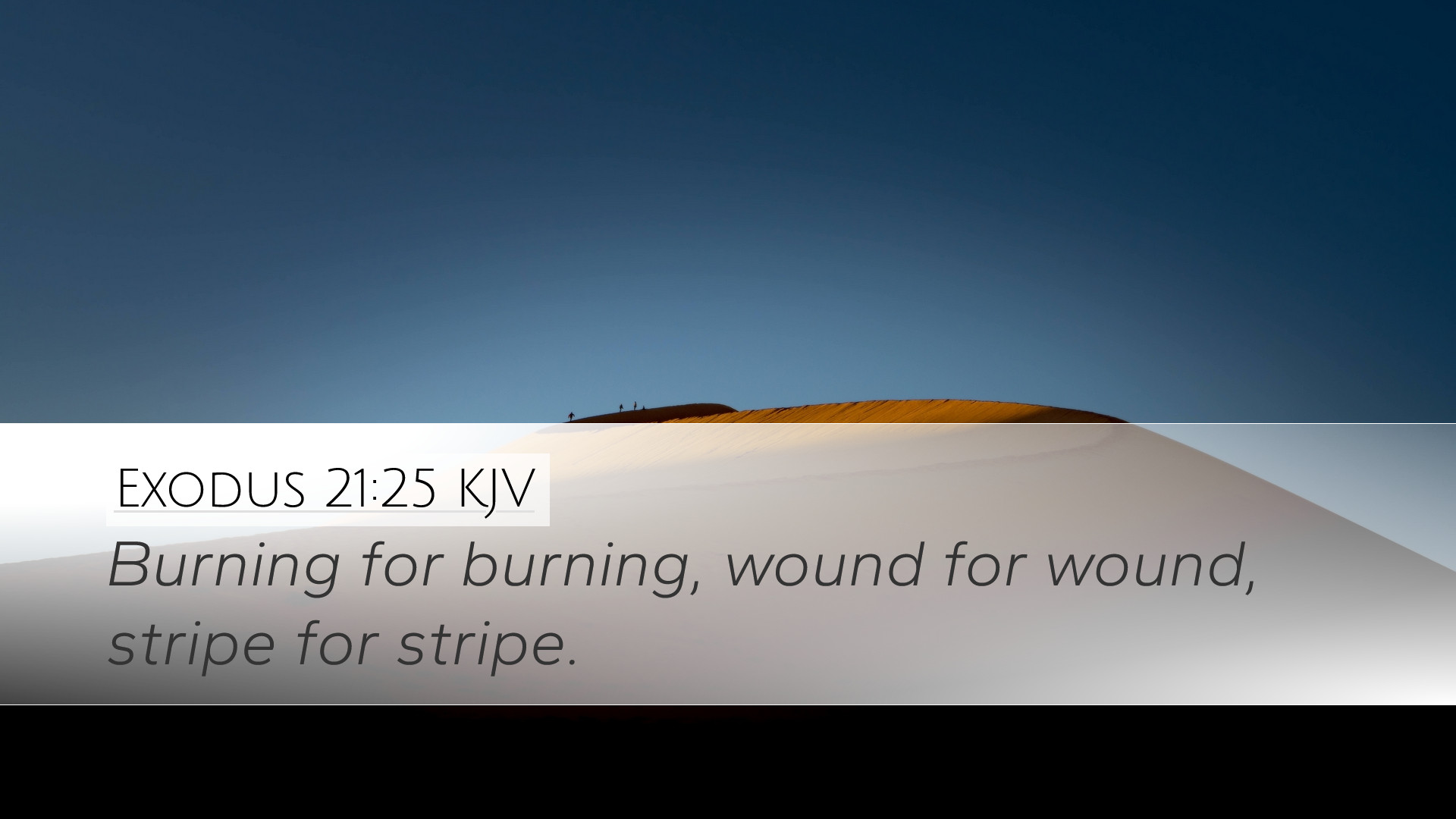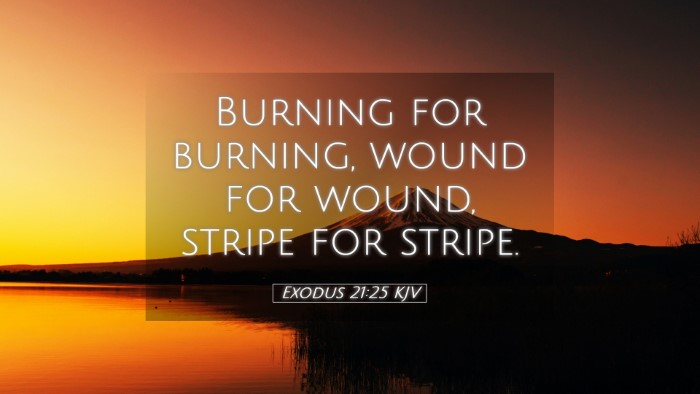Exodus 21:25 - Commentary and Insights
Verse: "But if any harm follows, then you shall give life for life, eye for eye, tooth for tooth, hand for hand, foot for foot."
Introduction
This verse is part of the Mosaic Law given to the Israelites, establishing principles of justice and retribution. The context of Exodus 21 deals with social justice and civil rights. The command here is often summarized under the principle of lex talionis, or the law of retaliation, which sets a standard for justice based on equity rather than excess.
The Principle of Retribution
Scholars like Matthew Henry emphasize that this law serves to prevent excessive punishment. Instead of retaliatory measures that could lead to cycles of violence and revenge, this law encourages a measured response—ensuring that the punishment fits the crime. This principle upholds the dignity of human life and recognizes that any harm done must be met with a proportional response.
Historical Context
Albert Barnes notes that the ancient Near East had various laws regarding retribution that were often harsher than those prescribed in the Mosaic Law. Here, God’s instruction is not only divine wisdom but also a progressive revelation of justice. Previous laws allowed for arbitrary revenge, which often led to societal injustices. The establishment of a defined retributive framework was revolutionary, promoting fairness and accountability.
Legal and Ethical Implications
Adam Clarke provides insight into the ethical dimensions of this law. He points out that while the law mandates punishment, it urges the community to take responsibility for wrongs committed. It is not merely a personal vendetta but a communal approach to justice. The community is tasked with ensuring that justice is carried out, reflecting God’s character through fair legal practices.
Symbolism and Theological Significance
Beyond its immediate legal implications, Henry highlights the deeper theological significance of the law. The principle of “life for life” points to the holiness of life and the seriousness of sin, which cannot go unpunished. It foreshadows the ultimate justice fulfilled in Christ, where He bears the penalty for humanity’s transgressions, enabling believers to find grace and mercy.
This verse becomes a cornerstone for understanding the nature of divine justice and mercy. It emphasizes that while God is just and holds humans accountable, He also desires reconciliation over retribution, a theme that unfolds throughout the entire Scripture.
Application for Contemporary Readers
In applying Exodus 21:25 today, Barnes urges us to consider our personal responses to wrongdoing. As Christians, we are called to reflect God’s nature in our dealings with others. This law prompts us to seek justice while also exercising mercy, following Christ’s example of mercy towards sinners. Rather than pursuing revenge, we must aim for restoration and healing in our communities, embodying the laws of love and compassion.
- Reflection: Consider how you respond to conflict—are you leaning towards revenge or reconciliation?
- Action: Identify areas in your community where justice is lacking and take steps to advocate for fair treatment.
Conclusion
Exodus 21:25, while a statement of civil law, transcends its original context to offer profound truths about justice, mercy, and the character of God. The integration of insights from figures like Matthew Henry, Albert Barnes, and Adam Clarke illuminates the verse's multi-faceted significance. As we engage with the text, may we deepen our understanding of God’s justice and embrace our call to embody His love in a broken world.


